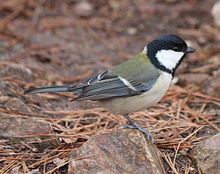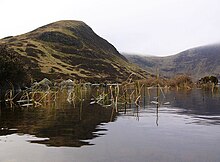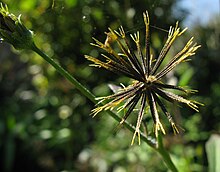No one on the internet seems to be owning up to having written it (quite understandable) but it seems to be connected with something called the Bridgend Grid for Learning.
Bridgend is in South Wales:

but it's a nice place, and I'd hate to think it was responsible for this verse.
To be fair (and I hope you appreciate the effort involved because it really isn't easy) there's nothing much wrong with the verse as verse. It rattles along quite neatly and comfortably. But that doesn't stop it being all wrong.
Here it is. If you can't be bothered to read it, the title says everything.
DON'T USE SAID!
Try whispered or stuttered,
Or stammered or yelled,
Uttered or laughed.
Giggled, exclaimed, whooped or howled!
But don't use SAID!
Use screamed, shrieked
Cheered or sobbed.
Try whimpered, whined,
Moaned or groaned!
But don’t use SAID!
Don’t say said,
Try whooped or screeched,
Or snorted or wailed,
Chanted or hummed,
Bellowed, drawled, ranted or gossiped,
But don’t use SAID!
Never say said,
Use questioned or answered,
Or chattered or cried,
Nattered or raved
Grunted, growled, snivelled or snarled,
But don’t use SAID!
The immediate reaction must be, oh, for heaven's sake, go away and read some decent writing and see how many good writers agree. (The answer, obviously, is none of them).
A bit more thought, though, and we might allow, grudgingly, that very stylised writing, whether gothic horror or broad comedy, will use alternatives for said rather more often than the writers of saner stuff.
But still, the rule for a writer is always. always, always nearer ALWAYS USE SAID than DON'T USE SAID.
You know the very worst thing about this? This verse is taught in our schools.
It's enough to make me weep.
Word To Use Today: said. The good thing is that this word's history in the English language goes right back to the Old English secgan, so it'll probably survive this verse.
Actually, now I come to look at it, even this silly verse uses say quite a lot, doesn't it.
I feel quite a lot better now I've realised that.

















